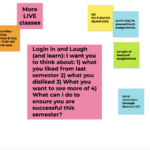I am in the spirit of love this week! Not only do I love celebrating Valentine’s Day, but this week is also my birthday week so it’s extra special.
When I think about LOVE, I can’t help but think about my recent book: Real Love: Strategies for Reaching Students When They See No Way Out, and what LOVE should look like in classrooms and schools.
Growing up, the love that I was missing from home, I sought to get from my teachers. Each day I entered the school building, I had a flashlight on searching for who was to show me the type of love I desired.
Since my mother and father did not set an example of what love should look and feel like, I relied on my teachers for that fulfillment.
If we’re being honest, there are some students who are relying on you to show them what love looks and feels like.
Is your learning environment a LOVing one? A LOVing learning environment is a Culturally Responsive Caring Environment.
If you have been following me for some time, I often talk about the concept of Culturally Responsive Caring.
But, what it is, and when it comes to your classroom or school environment, what does it look like?
Pulling from the scholarship of Dr. Geneva Gay (Mother of Culturally Responsive Pedagogy):
“Culturally caring focuses on caring for instead of caring about the personal well-being and academic success” of our students (Gay, 2017, p. 57).
According to Gay (2017), “caring about conveys a feeling of concern for one’s state of being while caring for is an active engagement in doing something to positively affect one’s state of being and encompasses a combination of concern, compassion, commitment, responsibility, and action.”
Caring about is an attitude based on emotion but is not intentional or purposeful in action.
On the other hand, caring for is a practice that is deliberate and purposeful and combined with emotionality.
Caring for our students leads to improved competence, agency, autonomy, efficacy, and empowerment.
I LOVE this quote from Geneva Gay in which she asserts that “to genuinely and effectively care for students, culturally responsive educators know before they can and should do.
Before we can do for our students and we should know WHO our students are which is something I discuss in this YouTube video.
The key to a loving and caring learning space is getting to know your students through intentional and consistent relationship building.
The relationship you have with your students, and how your care for them, will be reflected in the way you honor their humanity, the high expectation you hold from them, and the experiences and opportunities you provide for them to perform at their highest potential.
Because you know your students, and care for them, you know the social, emotional, cultural, and academic needs and tailor your learning environment and instruction to meet these needs.
You are loyal to your students, help them identify and overcome barriers, have a vision for them, and educate them for a future they can not currently see.
Caring educators know students are watching their every move, so, being their authentic selves, they model academic, social, personal, and moral behaviors and values for students to emulate.
Lastly, because they understand that the key to being culturally relevant and responsive educators is building students’ critical consciousness, caring educators abandon willed ignorance or political blindness to see the world their students see and help them navigate this world.
So, while we are in the spirit of loving and caring, reflect on the above and consider the ways you show your students–all students–that you care for them and not just about them
.
Alexes is an educator, wife, mom of 4 amazing children, and the founder of TwistED Teaching Educational Consultant Company. She has over a decade of experience in teaching at high school, college, and graduate levels. Alexes is a doctoral student at Texas A&M University where she is pursuing a Ph.D. in Curriculum and Instruction with an emphasis in Urban Education. Her research interests include culturally relevant pedagogy, culturally responsive teaching, reality pedagogy, and teacher preparation. When she is not teaching, researching, or writing, she is supporting educators and moms in becoming better versions of themselves through health and wellness.
Reference: Gay, Geneva (2017). Culturally responsive teaching: Theory, research, and practice (Multicutural Edition). Teachers College Press.



